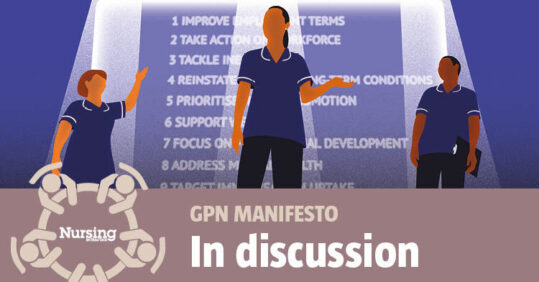Nursing in Practice to launch third GPN Manifesto roundtable report

Nursing in Practice will this week launch an exclusive roundtable report focusing on the mental health and wellbeing of general practice nurses (GPNs), as well as their professional development and career progression.
This marks the third in a series of roundtable reports linked to our GPN Manifesto for 2024 – made up of 10 priorities, created by Nursing in Practice in collaboration with 10 nurses.
Related Article: New digital support for community nurses in 10-year plan
The report, to be published on Wednesday, will explore concerns around GPNs feeling burnt out, compassion fatigue and ‘squeezed out’ of their workplaces.
Among those involved in this roundtable, it was agreed some GPNs are feeling ‘powerless’, and as if they are on an ‘escalator that never stops going up’.
And we discussed why the workforce must be listened to, valued and given enough time to do their jobs properly and safely.
Related Article: Nurse had to ‘freeze’ PPE during pandemic to re-use in care home, Covid inquiry hears
The report also explores the ‘hit and miss’ nature of professional development of GPNs and the funding constraints that can block progression.
Starkly, above the need to develop and progress was the need for GPNs to be reassured that their roles will continue and are here to stay, amid what feels like a move to replace them with other clinical roles, attendees suggested.
Earlier this year, we launched a roundtable report focused on the role of GPNs in addressing health inequalities, managing long-term conditions and promoting public health.
Related Article: Tell us what practice nursing means to you and potentially win £1,000
Meanwhile, our first GPN Manifesto roundtable report explored GPN recruitment, retention and pay.
Keep an eye out on our website and socials for the latest instalment on Wednesday 25 September.

See how our symptom tool can help you make better sense of patient presentations
Click here to search a symptom




